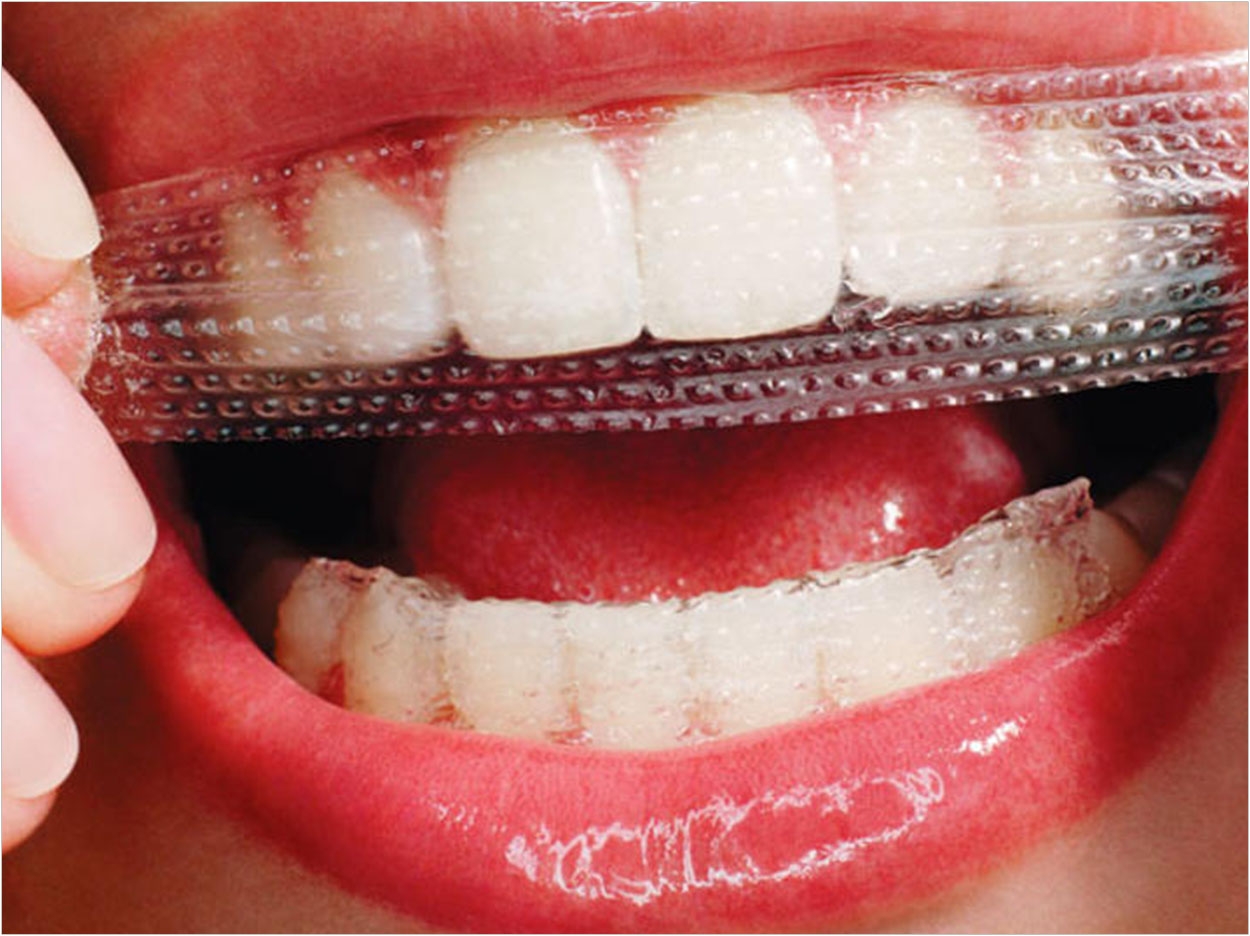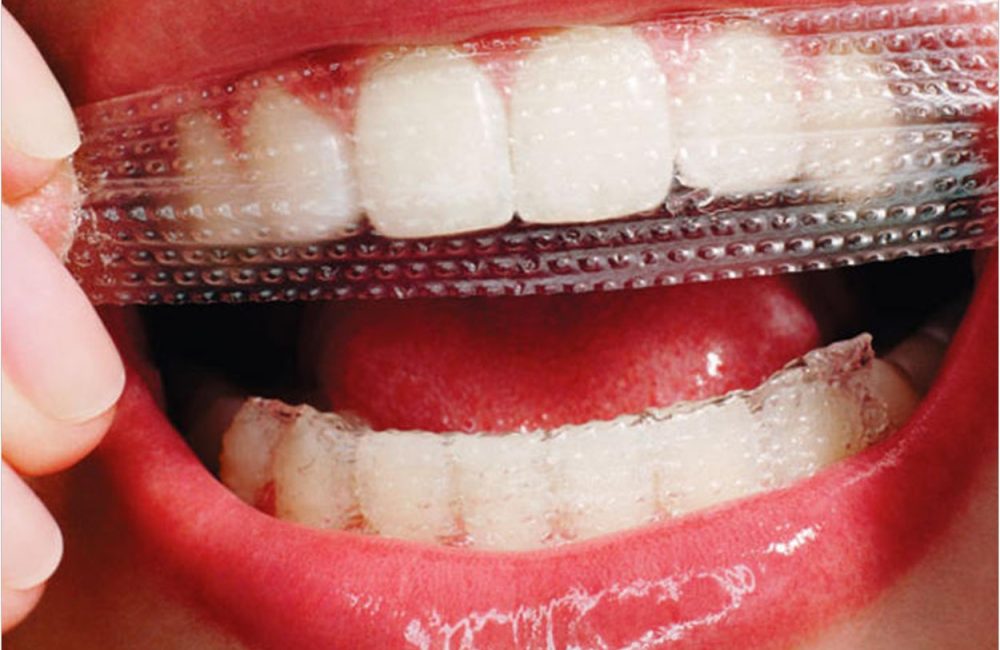
Hydrogen peroxide, which is the active ingredient in over-the-counter whitening strips, can damage the protein-rich dentin tissue found beneath the tooth’s protective enamel, according to researchers at Stockton University in New Jersey. However, some dentists are skeptical of the study’s results, considering their own experience in using whitening treatment.
While most studies of whitening strips have focused on enamel, which includes very little protein, the researchers have focused on dentin, which makes up most of the tooth and has high levels of protein, most of which is collagen.
Prior research has found that hydrogen peroxide can penetrate enamel and dentin. Previously, the researchers also found that collagen in the dentin layer decreased when teeth were treated with whitening strips.
“We sought to further characterize what the hydrogen peroxide was doing to collagen,” said Kelly Keenan, PhD, associate professor of chemistry. “We used entire teeth for the studies and focused on the impact hydrogen peroxide has on the proteins.”
The study found that the major protein in the dentin is converted to smaller fragments when treated with hydrogen peroxide. In additional experiments, the researchers treated pure collagen with hydrogen peroxide and then analyzed the protein using a gel electrophoresis laboratory technique that allows the protein to be visualized.
“Our results showed that treatment with hydrogen peroxide concentrations similar to those found in whitening strips is enough to make the original collagen protein disappear, which is presumably due to the formation of many smaller fragments,” said Keenan.
The researchers noted that their experiments did not address whether collagen and other proteins in the teeth can be regenerated, so whether the tooth damage is permanent is unknown.
Next, the researchers plan to further characterize the protein fragments released when collagen is treated with hydrogen peroxide and determine if hydrogen peroxide has the same impact on other proteins in the teeth.
Veteran practitioners, however, say that these results don’t correspond with the results they have seen in treating patients.
“In my opinion, and this is speaking from strictly a clinical observation standpoint, after so many years of experience in vivo with these products used on patients, we would have collectively observed negative effects of any permanent collagen changes or destruction by now,” said Dr. Damon Adams, editor in chief of Dentistry Today.
“I think it is important to realize that this is in vitro research working with extracted teeth, which lack the normal fluids within the dentin,” said Dr. Rella Christensen of TRAC Research.
“There is no question that there is some measurable influence on dentin caused by hydrogen peroxide,” said Dr. Gordon Christensen, founder and CEO of Practical Clinical Courses. “However, the fact that millions of people have bleached their teeth on a routine basis for decades should lead us to observe that there can’t be a major negative influence.”
The researchers will present their work at the American Society for Biochemistry and Molecular Biology annual meeting during the 2019 Experimental Biology meeting on April 9 in Orlando, Florida.
Related Articles
New Dangers Inherent in Home Teeth-Whitening Applications
Authorities Crack Down on Illegal Tooth Whitening
Permanent Teeth Whitening Eclipses Bleaching Methods












